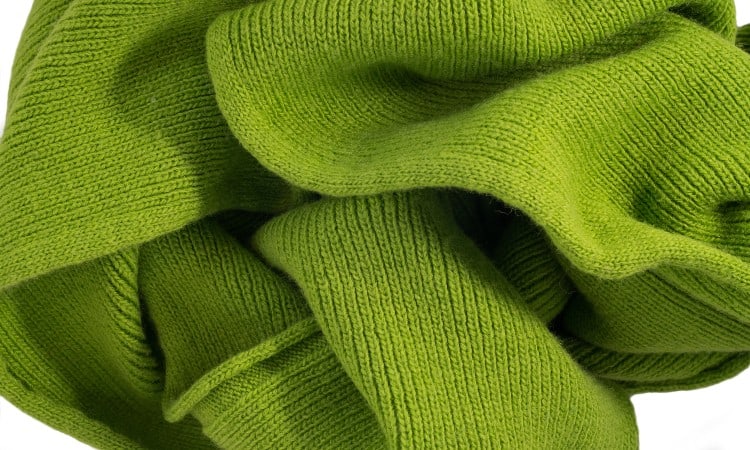Introduction:
Acrylic fabric is a synthetic fiber made from polymerized acrylic compounds. It is commonly used in the textile industry to make clothing, upholstery, and other materials. Acrylic fabric is known for its softness, durability, and resistance to wrinkles and stains. However, like any material, it also has its advantages and disadvantages.

In this article, we will explore the benefits and drawbacks of acrylic fabric in detail.
Advantages of Acrylic Fabric:
- Softness: Acrylic fabric is known for its softness, which makes it a popular choice for clothing, especially for children’s wear. It is also used in the manufacture of blankets and other bedding materials because of its softness.
- Durability: Acrylic fabric is very durable and can withstand wear and tear better than natural fibers such as cotton and wool. This makes it an excellent choice for items that are subjected to heavy use, such as upholstery and outdoor clothing.
- Resistant to Wrinkles and Stains: Acrylic fabric is resistant to wrinkles and stains, which makes it easy to maintain. It does not require special care, such as ironing, and can be machine washed and dried.
- Affordable: Acrylic fabric is generally less expensive than natural fibers such as wool and silk. This makes it a popular choice for manufacturers who want to produce affordable clothing and other textiles.
- Lightweight: Acrylic fabric is lightweight, which makes it an ideal choice for outdoor clothing, such as jackets and sweaters. It provides warmth without adding bulk, which is important for people who are active outdoors.
Disadvantages of Acrylic Fabric:
- Not Environmentally Friendly: Acrylic fabric is made from petroleum, which is a non-renewable resource. It is also not biodegradable, which means that it does not break down in the environment.
- Poor Insulator: While acrylic fabric is lightweight, it is not a good insulator. It does not retain heat well and can be uncomfortable in cold weather.
- Prone to Pilling: Acrylic fabric is prone to pilling, which is the formation of small balls or knots on the surface of the fabric. This can make clothing and other textiles look worn and old before their time.
- Can Melt: Acrylic fabric is susceptible to melting when exposed to heat. This can be a safety concern, especially for items that are used near flames or heat sources.
- Can Cause Allergic Reactions: Some people may be allergic to acrylic fabric. It can cause skin irritation, itching, and other allergic reactions.
What is the advantage of oligarchy?
The advantage of an oligarchy is that decision-making can be more efficient due to a smaller group of individuals holding power. This can result in quicker and more effective responses to issues facing the society or nation.
What were the disadvantages of oligarchy in ancient Greece?
In ancient Greece, the disadvantages of oligarchy included a lack of representation for the lower classes and a concentration of wealth and power in the hands of a few individuals or families. This could lead to corruption, as the oligarchs may use their power for personal gain rather than the benefit of the society as a whole.
What are the characteristics of oligarchy?
The characteristics of an oligarchy include a small group of individuals holding power, often based on wealth or family connections. These individuals may not be elected, and power may be passed down through generations or awarded to those deemed qualified by the existing oligarchs. Oligarchies may lack representation and accountability for the interests of the broader population.
Why is an oligarchy better than a monarchy?
There is no definitive answer to whether an oligarchy is better than a monarchy, as it depends on the specific context and goals of the society or nation. However, some arguments in favor of oligarchy over monarchy include the potential for more efficient decision-making due to a smaller group of decision-makers and greater stability due to the concentration of power in the hands of a few individuals or families. On the other hand, oligarchies may also be prone to corruption and abuse of power, and may lack representation and accountability for the broader population.
What are the disadvantages of oligarchy?
The disadvantages of oligarchy include a concentration of power in the hands of a few individuals or families, which can lead to corruption and abuse of power. Oligarchies may lack representation and accountability for the broader population, leading to a lack of diversity in government and a potential for instability and conflict.
Oligarchy advantages and disadvantages quizlet:
Quizlet is a website that provides flashcards and other study tools for a variety of topics, including oligarchy. An oligarchy quizlet may include flashcards that list the advantages and disadvantages of oligarchy, as well as other key terms and concepts related to oligarchic systems of government.
What are the advantages of oligarchy?
The advantages of oligarchy include more efficient decision-making due to a smaller group of decision-makers, greater stability due to a concentration of power in the hands of a few individuals or families, and potentially more decisive action in times of crisis or emergency.
Advantages of oligarchy in ancient Greece:
In ancient Greece, the advantages of oligarchy included the potential for stable, long-term leadership due to power being passed down through generations or awarded to those deemed qualified by existing oligarchs. Oligarchies may have also been more efficient in decision-making than other forms of government, leading to more effective responses to crises and other issues.
Democracy advantages and disadvantages:
The advantages of democracy include representation and accountability for the broader population, leading to a diversity of perspectives and potential for more just and equitable policies. However, disadvantages of democracy may include slower decision-making and potential for instability due to the need to balance the interests of multiple groups.
Is oligarchy good or bad?
Whether oligarchy is good or bad depends on the specific context and goals of the society or nation in question. Oligarchies may have advantages in terms of efficiency and stability, but they also come with the potential for corruption and abuse of power, lack of representation, and potential for conflict.
Oligarchy countries:
Oligarchy is not a specific type of government, but rather a system in which a small group of individuals hold power. As such, there is no definitive list of oligarchy countries. However, there are examples of oligarchic systems in many countries throughout history, including ancient Greece, Rome, and Venice.
Oligarchy examples:
Examples of oligarchies include the medieval republic of Venice, where power was held by a wealthy elite, and the Roman Republic, where power was held by a small group of patricians. Modern examples of oligarchic systems include Russia and many countries in the Middle East, where power is held by a small group of wealthy and influential individuals or families.
What is an oligarchy?
An oligarchy is a system of government in which a small group of individuals hold power. This group may be defined by wealth, family connections, or other criteria.
What are the advantages of an oligarchy?
The advantages of an oligarchy include more efficient decision-making due to a smaller group of decision-makers, greater stability due to a concentration of power in the hands of a few individuals or families, and potentially more decisive action in times of crisis or emergency.
What are the disadvantages of an oligarchy?
The disadvantages of an oligarchy include a concentration of power in the hands of a few individuals or families, which can lead to corruption and abuse of power. Oligarchies may lack representation and accountability for the broader population, leading to a lack of diversity in government and a potential for instability and conflict.
What are examples of oligarchies?
Examples of oligarchies include ancient Greece, Rome, and Venice, as well as modern countries like Russia and many countries in the Middle East.
How is oligarchy different from democracy?
Oligarchy is a system of government in which power is held by a small group of individuals, while democracy is a system of government in which power is held by the people through free and fair elections. In an oligarchy, decision-making may be more efficient but lacks representation for the broader population, while in a democracy, decision-making may be slower but represents the diverse interests of the population.
Is oligarchy good or bad?
Whether oligarchy is good or bad depends on the specific context and goals of the society or nation in question. Oligarchies may have advantages in terms of efficiency and stability, but they also come with the potential for corruption and abuse of power, lack of representation, and potential for conflict. Ultimately, the effectiveness and ethicality of an oligarchic system depend on the actions and decisions of those in power.
Conclusion
While oligarchies can provide some advantages, such as efficient decision-making and stability, they also come with significant disadvantages that can have negative consequences for citizens living under this type of government. These disadvantages include corruption and abuse of power, a lack of accountability and representation, and instability and conflict. As such, it is important to carefully consider the potential drawbacks of an oligarchic system of government when assessing its suitability for a given society or nation.



